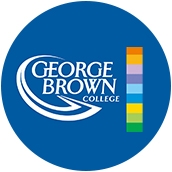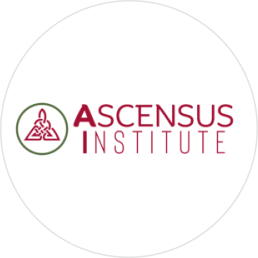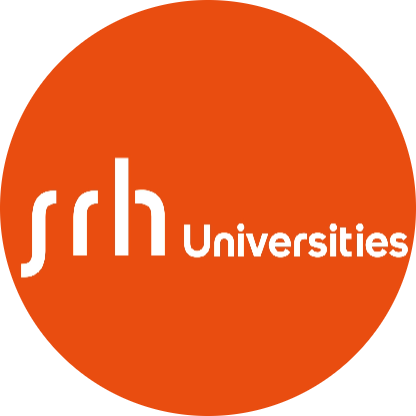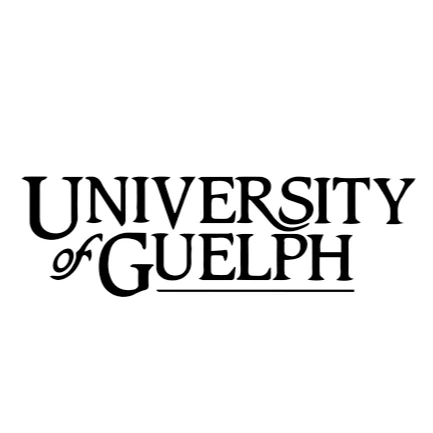• Australia
Australian Student Visa Interview Questions and Answers
17681 Reads
3 min Read
- The main idea behind the interview is to assess the authenticity of student’s application and the genuine intention to study in Australia.
- This interview process was previously known as the Genuine Temporary Entrant (GTE) Requirement, but now the Government has replaced it with a Genuine Student (GS) requirement.
- Students Should be well-prepared while appearing for the interview.
Starting a study abroad journey can be overwhelming and this decision needs courage. If you are someone who decided to study abroad, so proud of you! This process must have been a roller coaster ride for you, isn’t it? Now that you are here, the next question in your mind must be what's next? Securing a student visa is an essential step of this process that includes a visa interview. Feeling confused? Are you thinking about what would be the Australian student visa interview questions?
Australian Student Visa Interview - Overview
How to Prepare for Australian Student Visa Interview Questions?
| Research | Make sure to conduct proper research about the course you have applied for, the university you have selected, the campus you have chosen, the Australian Education System, and more. Being able to talk about your academic goals effectively can help you look more dedicated and credible in the interview. |
| Documentation | Make sure that you have gathered all the required documents in order such as the offer letter, proof of financial capacity, and any other relevant documents. |
| Practice | Before sitting in front of the interviewer make sure to practice. Practice answering potential interview questions with a family member, friend, or mentor. This will help you enhance your communication skills and reduce your nervousness. |
Common Questions Asked in Australian Student Visa Interview
Genuine Student (GS) interview formerly known as Genuine Temporary Entrant (GTE) plays an important role in getting an Australian student visa. You need to be very careful and well-prepared for this interview as your admission can get canceled if you fail to clear the interview. Before going ahead, keep in mind that the main motive of this interview is to assess the genuineness of the candidate. Further, be ready to show proof of your academics, financial situations, and more.
Now, let’s have a look at the 4 most common Australian Student Visa Interview Questions that you should prepare.
Why did you choose to study in Australia over other countries?
Why did you choose this university?
Why did you choose this specific course?
What are your plans after completing your studies in Australia?
More Questions Asked in Australian Student Visa Interview
Q. Give me your brief introduction/ introduce yourself.
Q. Explain your academic background.
While talking about your academic background, mention the percentage you got in your 10th and 12th. If you are going for a master's program, also mention the scores of your bachelor's. Additionally, mention the subjects you have studied in your previous degree.
Q. Do you have any work experience? If yes, please explain.
While explaining your work experience, mention the names of companies you have worked in. Additionally, mention your designation, responsibilities, achievements, challenges, and time duration you have worked for.
Q. Why not India? Is the same course available in your home country?
Be careful while answering this question, don’t mention negative aspects about your home country. You can tell the interviewer that you want international exposure, or something else. Also, mention the name of Indian Universities In which the same course is available, compare course content of Indian Universities with Australian Universities, difference between Indian & Australian education system.
Q. Which campus have you applied for and why did you choose this Campus? Location of your chosen campus.
In the answer of this question you should be able to explain what you know about your chosen campus and its surroundings.
Q. How many provinces and UT’s are in Australia?
You must know that The country is divided into six states: New South Wales, Victoria, Queensland, Western Australia, South Australia, and Tasmania - and two internal territories: The Northern Territory and the Australian Capital Territory, which contains Canberra.
Q. What are your career plans? What skills you will gain after the completion of this Program?
Mention skills you will gain after the completion of your course, how those skills will be helpful to find a job in your home country. Further mention, what kind of job role you are looking for, Companies/MNCs names, positions you can work, and the employment conditions in your home country.
Q. Who is sponsoring your education? What are the sources of income and annual income of the sponsored person and how much funds do you have?
Be clear while answering this question. Finances are the most important part. Explain if you are taking an education loan (how much loan you will take and from which bank).
Q. Where will you stay in Australia? (On Campus or off campus).
You must be ready with your accommodation before moving to Australia. Tell the interviewer if you have already found a place to live or if not then how you are going to arrange it.
Q. Distance from your Accommodation to the University?
You should know the distance of your university from where you will be living.
Q. How will you manage your expenses in Australia?
Do not mention the intention of managing your expenses by working in Australia. Tell the interviewer that you have enough funds available so that you can manage your expenses well.
Q. Are you aware of the visa rules and regulations? Explain.
Before appearing for the interview, have a look at the visa rules and regulations. All these rules should be at your fingertips while interviewing.
Q. Tell me about the job opportunities and companies there in Australia in the same field.
You should be aware of the job prospects after the completion of your course.
Q. Do you know about OSHC? Why is it necessary for every student?
You should know what Overseas Student Health Cover (OSHC). You must know the amount for the same.
Q. Are you aware about Subclass 500 and Subclass 485?
You should know what visa you will be getting.
- Student visa Subclass 500 - Allows students to remain in Australia for up to 5 years for full-time study at an educational institution in Australia.
- Subclass 485 (Temporary Graduate Visa) - (Post-study Work Permit), which allows students to work after the completion of their degree and gain work experience in Australia.
Conclusion
Preparing for Australian Student Visa Interview Questions can be challenging for you. It requires dedicated preparation as it is a very important step in your visa application process. You need to be well-prepared and confident while appearing for the interview. The questions listed above cover a broad spectrum of topics, aiming to gauge your intentions, preparedness, and suitability. You should approach these questions with honesty and confidence, demonstrating your commitment to your chosen field. A successful interview is not just about providing the right answers. It is about demonstrating your enthusiasm, resilience, and potential. If you want more information or help regarding the same, then you can contact study abroad consultants at Canam and get guidance for your study abroad journey.
FAQ
- Create a good impression
- Be calm and confident
- Be well prepared
- Keep your answers short and to the point
- Explain how your program matches your career plans.
- Be polite when introducing yourself to the interviewer.
- Be honest when answering all the questions, don't exaggerate anything.
- Wear formal attire for an interview.
- Gather all the important documents in order.
Get great articles direct to your inbox
The latest news, articles, and resources, sent straight to your inbox every month.
Popular Universities to Study Abroad
World class education waiting for you.
.png)
Shorelight Group - Dakota Wesleyan University
South Dakota, USA • 34 Programmes
Tuition Fee : USD 32000-33000 / year

EDUCO - Minnesota State University
Minnesota, USA • 165 Programmes
Tuition Fee : USD 18000-19000 / year

George Brown College - Toronto Metropolitan University Campus
Ontario, Canada • 6 Programmes
Tuition Fee : CAD 18000-27000 / year


SRH Universities - Cologne Campus
North Rhine-Westphalia, Germany • 6 Programmes
Tuition Fee : EUR 7800-9000 / year

Providence University College - Winnipeg Campus
Manitoba, Canada • 1 Programmes
Tuition Fee : CAD 16500-17000 / year

.png)
Shorelight Group - St. Thomas Aquinas College
New York, USA • 39 Programmes
Tuition Fee : USD 38000-38500 / year
Popular English Language Proficiency Exams
Blogs and Articles
Curated content to keep you updated on the latest education trends, news and more.
Ireland Student Visa Process 2025 | Step-by-Step Guide & Requirements
Updated on • Apr 19,2025 03:30 PM IST • Ireland
ACT vs. SAT: Which One to Choose?
Updated on • Apr 14,2025 01:46 PM IST • Study Abroad
Updated on • Apr 11,2025 05:53 PM IST • IELTS
Backlog Certificate: A Complete Guide
Updated on • Apr 11,2025 01:47 PM IST • Study Abroad Guidance
PTE Score Chart 2025: PTE Exam Scoring System & Calculation
Updated on • Apr 09,2025 05:37 PM IST • PTE
Master's in Computer Science in the USA
Updated on • Apr 08,2025 05:59 PM IST • USA
Top Trending MBA Specialisations in 2025
Updated on • Apr 08,2025 04:47 PM IST • Study Abroad
Describe Your Hometown IELTS Speaking Part 1 Topic
Updated on • Apr 07,2025 05:50 PM IST • IELTS
How to Get a Job in USA in 2025
Updated on • Apr 07,2025 03:19 PM IST • USA
Highest Paying Jobs in the World
Updated on • Apr 01,2025 05:31 PM IST • Study Abroad
Student Life in Ireland in 2025
Updated on • Mar 29,2025 05:50 PM IST • Ireland
Top Public Universities in Germany
Updated on • Mar 26,2025 04:33 PM IST • Germany
Top Universities for Masters in Ireland in 2025
Updated on • Mar 25,2025 04:36 PM IST • Ireland
Cost of Living in Singapore for Indian Students in 2025
Updated on • Mar 22,2025 11:57 AM IST • Singapore
PTE vs IELTS : Know the Difference and Which is Easier?
Updated on • Mar 21,2025 03:38 PM IST • IELTS
Updated on • Mar 20,2025 10:19 AM IST • Germany
Updated on • Mar 12,2025 11:20 AM IST • Ireland
Updated on • Mar 11,2025 01:18 PM IST • USA
Best Countries to Study Abroad for Indian Students in 2025
Updated on • Mar 08,2025 01:24 PM IST • Study Abroad
Updated on • Mar 05,2025 12:19 PM IST • UK
Related Blogs and Articles
A little effort to provide an authentic and reliable content for keen readers!!
Masters in Project Management in Australia
Updated on • 25-02-2025 • Australia
Public Relations (PR) Courses in Australia
Updated on • 07-02-2025 • Australia
February Intake in Australia: Timeline, Courses, Universities, Deadlines & More
Updated on • 01-02-2025 • Australia
What makes Australia a preferred study destination for Indians?
Updated on • 10-01-2025 • Australia
Updated on • 20-12-2024 • Australia
Bachelor of Nursing Courses in Australia
Updated on • 30-11-2024 • Australia
Post Study Work Permit in Australia
Updated on • 18-11-2024 • Australia
Australia Study Visa - Requirements, Process, Fee, How to Apply & More
Updated on • 08-10-2024 • Australia
Highest Paying Jobs in Australia for International Students
Updated on • 23-09-2024 • Australia
Study Intakes in Australia for International Students
Updated on • 23-09-2024 • Australia
Why Australia is Better Than Other Countries for Study?
Updated on • 11-09-2024 • Australia
Master of Social Work (MSW) in Australia
Updated on • 10-08-2024 • Australia
Top 10 Benefits of Studying in Australia for Indian Students
Updated on • 15-07-2024 • Australia
Facts to Know Before Studying in Australia
Updated on • 12-07-2024 • Australia
Why should you Study Civil Engineering in Australia?
Updated on • 28-06-2024 • Australia
Updated on • 12-06-2024 • Australia
Benefits of Studying in Regional Australia
Updated on • 15-05-2024 • Australia
LLM in Australia: Top Universities, Eligibility, Courses, Scholarship for Indian Students
Updated on • 26-04-2024 • Australia
Study and Work in Australia: A Comprehensive Guide
Updated on • 05-04-2024 • Australia
MBBS in Australia: Top Universities, Syllabus, Cost of Study, Eligibility, Scholarships & Jobs
Updated on • 15-03-2024 • Australia












